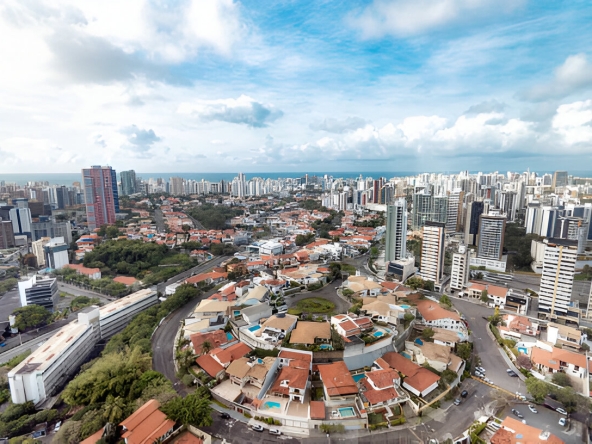As Malaysia heads into 2025, the property market continues to evolve in response to economic, social, and technological shifts. For investors, homeowners, and developers alike, understanding property market trends is crucial for staying ahead in a competitive landscape.
Urban Growth and Shifting Housing Demand
Urbanization remains a key driver of property development in Malaysia. Cities like Kuala Lumpur, Penang, and Johor Bahru are expanding rapidly, fueled by demand for high-quality housing options that cater to diverse demographics. With younger professionals gravitating toward urban centers, developers are focusing on creating spaces that combine convenience and modern amenities.

In parallel, suburban areas are witnessing a surge in demand, especially among families seeking affordable homes with access to green spaces. This trend is reshaping the types of properties being developed, emphasizing sustainability and community-centric designs.
The Rise of Smart and Sustainable Properties
Sustainability and technology are at the forefront of property market trends in Malaysia for 2025. Buyers increasingly prioritize eco-friendly features such as energy-efficient appliances, solar panels, and rainwater harvesting systems. Developers are also responding to these demands by adopting green building certifications to attract eco-conscious consumers.

The integration of smart technologies in homes is another game-changer. Properties equipped with advanced security systems, smart thermostats, and automated lighting are becoming standard offerings, aligning with global trends toward smart living.
Key Property Market Indicators to Monitor
Understanding the Malaysian property market involves keeping an eye on several key indicators:
- Government policies: Initiatives like affordable housing schemes and changes in foreign ownership regulations significantly impact market dynamics. Stay updated through reliable sources like the Ministry of Housing and Local Government Malaysia.
- Interest rates: Fluctuations in interest rates influence borrowing costs and, consequently, property prices.
- Population growth: Demographic trends, including migration to urban centers, drive demand for specific types of properties.
- Infrastructure development: New transportation hubs and highways can increase property values in surrounding areas.
Post-Pandemic Recovery Shaping the Market
The aftermath of the COVID-19 pandemic has left an indelible mark on property trends. The rise of remote work has led to a growing preference for properties with home offices and spacious interiors. Meanwhile, mixed-use developments that combine residential, commercial, and recreational spaces are becoming more attractive to buyers seeking convenience and flexibility.

Tourism recovery also plays a pivotal role in the property market, particularly in areas like Langkawi and Sabah, where short-term rental properties are in high demand. The Malaysian government’s tourism initiatives, such as those outlined by the Tourism Malaysia Official Portal, further support this trend.
Key Investment Opportunities
Investors in Malaysia’s property market can explore various promising avenues:
- Affordable housing: With government-backed schemes like PR1MA, affordable housing developments continue to attract buyers and investors.
- Luxury properties: Urban centers remain hubs for luxury developments, offering high returns in the rental market.
- Industrial spaces: The growth of e-commerce and logistics boosts demand for warehouses and industrial properties.
- Eco-friendly developments: Green-certified projects promise long-term value and appeal to environmentally conscious buyers.
Challenges to Watch
Despite the opportunities, there are challenges to consider when navigating property market trends in Malaysia for 2025. Rising construction costs, driven by global inflation and supply chain disruptions, put pressure on developers and buyers alike. Additionally, oversupply in certain segments, such as high-end condominiums, can affect market stability.
Another challenge lies in regulatory changes, such as stricter lending policies. These measures, while aimed at fostering sustainable growth, may impact first-time homebuyers and small-scale investors.
The Future of Malaysia’s Property Market
As Malaysia’s property market evolves, innovation and adaptability remain critical. Developers are investing in advanced construction techniques to reduce costs while maintaining quality. In addition, foreign investments are set to play a more significant role, with Malaysia positioning itself as a strategic hub in Southeast Asia.
Educational resources, such as insights from the Harvard Joint Center for Housing Studies, provide valuable context for understanding global trends and applying them locally. Staying informed is key to making sound decisions in this dynamic market.
Plan Your Next Move
The property market in Malaysia for 2025 offers exciting opportunities for growth and innovation. Whether you’re an investor, developer, or first-time buyer, understanding these trends can help you make the right decisions. Contact Explore Malaysia today to discover tailored solutions and expert guidance for your property needs.







